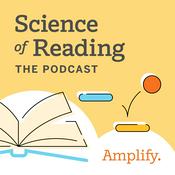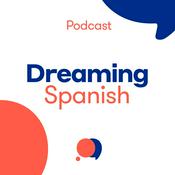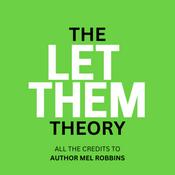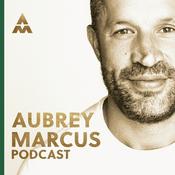Podclass - Podcast for Teachers and Educators
Amanda Marshall, Skye Hughes and Wil Massara

Latest episode
72 episodes
- Hosts: Amanda, Skye & Will
Length: ~14 minutes
Listen on: Podclass | Instagram
🌟 Episode Summary
In this special year-end reflection, the Podclass crew – Amanda, Skye, and Will – sit down to unpack the big personal and professional lessons that shaped them in 2025. This episode offers a heartfelt invitation to reflect, reconnect, and honour the growth that’s often hard to measure.
Whether you're an educator, student, or someone just trying to keep pace with life, this warm and vulnerable conversation will leave you inspired to embrace your own journey with greater compassion and clarity.
💬 Discussion Segments
"Your Capacity ≠ Your Competence"
“I’ve had to constantly remind myself that my capacity on any given day is not the same thing as what I’m actually capable of.” – Skye
Becoming a mum and stepping away from work brought Skye face-to-face with one of her biggest learnings yet: that strength isn’t measured by output, and worth isn’t tied to productivity. This segment opens a vital conversation on self-compassion, boundaries, and identity in shifting seasons of life.
Redefining Growth: From Chaos to Precision
“What I had defined as growth was just survival – now, it’s building something sustainable.” – Will
Will reflects on the transition from burnout-fuelled hustle to intentional leadership. Taking the helm of a major youth event, he speaks about embracing structure, redefining success, and finally becoming comfortable with certainty.
Choosing Readiness & Letting Go
“Ready isn’t a feeling. Ready is a decision.” – Amanda
Amanda shares her experience leading their business solo and the emotional complexity of early pregnancy. Her biggest learning? Letting go of identity tied to achievement while choosing to believe in her own capability.
📚 Practical Strategies for Educators
Make space for reflection: Build in time at the end of term or year to reflect on growth – personally and with students.
Normalise life transitions: Talk about seasons of change and challenge. Create a classroom culture where students can voice what they’re moving through.
Value empathy over output: Teach that competence doesn't always look like productivity. Model self-kindness when things feel hard.
💭 Final Thoughts
This episode is a gentle but powerful nudge to pause and ask: What did I learn this year? You might be surprised by the wisdom hidden in your challenges. Grab a friend, a cup of tea, and a quiet hour – it’s time to reflect.
🔗 Connect with Us
🎧 Full episodes: ylaaus.com/podclass
📲 Follow on IG: @podclass.aus
🌱 Partner orgs: YEP | YLAA - Hosts: Amanda Marshall, Skye Hughes, Will Masara
Guest: Gina Martin, gender equality activist, writer, and changemaker
🔥 Episode Summary
In Episode 68, the Podclass team is joined by the remarkable Gina Martin, whose activism changed UK law after a personal experience of gender-based violence. In this honest, empowering, and deeply practical conversation, Amanda, Skye and Will unpack what equality really means in 2025, and how educators and young people alike can drive everyday change.
From calling out injustice in the classroom to nurturing courageous conversations with young people, this episode is a must-listen for anyone navigating education, leadership, and identity in today’s world.
🗣️ Key Discussion Segments
“Activism isn’t a label, it’s how you live”
Gina Martin shares how her personal journey from art director to activist began after experiencing upskirting at a festival. Her fight to change UK law highlighted the power of everyday people making systemic change through courage, research, and action.
“Most activists wouldn’t even call themselves that. For many, using that word could get them in trouble with the state.” – Gina
Culture vs System: Why we need both to change
The group unpacks the dual need for cultural and systems change – from legislation to school norms – and how educators can lead both from the front.
“If we change how someone feels or a choice they make, even in one moment, that’s culture change – and that’s powerful.” – Gina
Equality, Language & Learning Spaces
Gina reflects on how she adapts her activism when working with young people, helping them unpack gender stereotypes and inequality without jargon. The team explores how to turn triggering classroom moments into teachable opportunities.
“Young people don’t need us to ‘give them’ a voice. They already have one. The job is to listen, and to meet them where they are.” – Gina
💡 Practical Strategies for Educators
1. Turn reaction into reflection
Notice your physical responses to challenging comments. Before shutting things down, breathe, regulate, and get curious.
2. Embrace imperfection
Don’t wait to be perfectly trained before acting. Start small, stay open, and learn in real time – clumsy action is better than no action.
3. Shift from “me” to “we”
Team up with colleagues to ask questions about school culture, language, and practice. Collective curiosity fuels meaningful change.
4. Teach beyond the terms
Ditch jargon and meet young people in their language. Start with stories, stereotypes, and lived experience – let the rest follow.
🎧 Listen & Learn More
This episode reminds us that educators are cultural leaders – not just curriculum deliverers. Tune in to hear how hope, curiosity, and community can transform your classroom into a site of equality, empowerment, and action.
🌐 Podclass Website: www.ylaaus.com/podclass
📲 Follow on Instagram: @podclass.aus
🔗 Learn more about YEP & YLAA:
YEP – Youth Engagement Project
YLAA – Young Leaders Academy Australia - Hosts: Scott Huck, Amanda Marshall, and Will Masara
Run Time: ~18 minutes
Summary:
In this energising and insightful episode of Podclass, the trio tackles a big question: What are we getting wrong about young people? From generational assumptions to outdated stereotypes, this episode is a call to reframe how we view, support, and speak about Gen Z and Gen Alpha. With a mix of laughs, data, and raw truths, Scott, Amanda, and Will unpack the disconnect between generations and challenge educators, adults, and society to lead with empathy over judgement.
Whether you're a teacher, parent, youth worker or just care about the next generation, this is a must-listen.
🔍 Episode Segments
“We don’t say the K word!” – Respecting Language and Lifting Expectations
“We call them young people because that’s really respectful. You have to do 10 push-ups if you say the K word!”
The team opens by unpacking the language we use about young people, highlighting how even small shifts in terminology shape our attitudes. It sets the stage for a broader discussion on stereotypes and why the phrase “kids these days” misses the mark.
Bridging the Generational Gap: Assumptions, Empathy and Real Talk
“Imagine the difference in our schools if adults led with curiosity instead of judgement.”
The hosts dive deep into the widening divide between generations. They reflect on how societal shifts, climate instability, economic uncertainty, and digital overload have made traditional pathways obsolete. Gen Z and Gen Beta are navigating complexity without a roadmap – and they’re doing it with courage.
Redefining Resilience and Supporting Young People
“This generation might need the most resilience we’ve ever seen – but they’re labelled as fragile.”
The conversation challenges the myth that young people are ‘snowflakes’ or lack resilience. The team explores the neuroscience of stress, the impact of overstimulation, and why regulation, autonomy, and emotional literacy are the new frontier in education. It’s a rallying cry to stop managing behaviour and start building connection.
🧠 Practical Strategies for Educators
Lead with Curiosity, Not Judgement: Ask “What might they be trying to tell us?” rather than “Why are they like this?”
Model Emotional Regulation: Students are emotionally literate – they expect the same from adults.
Prioritise Autonomy: Give students meaningful choice and voice in learning environments.
Focus on Relational Safety over Control: Consistent boundaries build trust and connection.
Reframe 'Attention-Seeking': It's connection-seeking – respond with compassion.
🎉 Conclusion
Young people are not a problem to be fixed – they are a generation navigating chaos, climate, and change with extraordinary resilience. This episode calls on adults to drop the comparisons and meet them where they are, with curiosity, compassion, and clarity.
🔗 Explore more episodes of Podclass at www.ylaaus.com/podclass
📲 Follow us on Instagram @podclass.aus
🌐 YEP: youthengagementproject.com | YLAA: ylaaus.com - Skye Hughes, Wil Massara and Amanda Marshall tackle a big question: What are we getting wrong about young people?
From generational assumptions to outdated stereotypes, this episode is a call to reframe how we view, support, and speak about Gen Z and Gen Alpha. With a mix of laughs, data, and raw truths, we unpack the disconnect between generations and challenge educators, adults, and society to lead with empathy over judgement.
Whether you're a teacher, parent, youth worker or just care about the next generation, this is a must-listen.
🔍 Episode Segments
“We don’t say the K word!” – Respecting Language and Lifting Expectations
“We call them young people because that’s really respectful. You have to do 10 push-ups if you say the K word!”
The team opens by unpacking the language we use about young people, highlighting how even small shifts in terminology shape our attitudes. It sets the stage for a broader discussion on stereotypes and why the phrase “kids these days” misses the mark.
Bridging the Generational Gap: Assumptions, Empathy and Real Talk
“Imagine the difference in our schools if adults led with curiosity instead of judgement.”
The hosts dive deep into the widening divide between generations. They reflect on how societal shifts, climate instability, economic uncertainty, and digital overload have made traditional pathways obsolete. Gen Z and Gen Beta are navigating complexity without a roadmap – and they’re doing it with courage.
Redefining Resilience and Supporting Young People
“This generation might need the most resilience we’ve ever seen – but they’re labelled as fragile.”
The conversation challenges the myth that young people are ‘snowflakes’ or lack resilience. The team explores the neuroscience of stress, the impact of overstimulation, and why regulation, autonomy, and emotional literacy are the new frontier in education. It’s a rallying cry to stop managing behaviour and start building connection.
🧠 Practical Strategies for Educators
Lead with Curiosity, Not Judgement: Ask “What might they be trying to tell us?” rather than “Why are they like this?”
Model Emotional Regulation: Students are emotionally literate – they expect the same from adults.
Prioritise Autonomy: Give students meaningful choice and voice in learning environments.
Focus on Relational Safety over Control: Consistent boundaries build trust and connection.
Reframe 'Attention-Seeking': It's connection-seeking – respond with compassion.
🎉 Conclusion
Young people are not a problem to be fixed – they are a generation navigating chaos, climate, and change with extraordinary resilience. This episode calls on adults to drop the comparisons and meet them where they are, with curiosity, compassion, and clarity.
🔗 Explore more episodes of Podclass at www.ylaaus.com/podclass
📲 Follow us on Instagram @podclass.aus
🌐 YEP: youthengagementproject.com | YLAA: ylaaus.com - Hosts: Wil Masara, Amanda Marshall, Skye Hughes
🎧 A deep dive into what trauma-informed practice actually means, why it matters, and how educators can embody it every day.
Episode Summary
In Episode 66 of Podclass, Wil, Amanda and Skye return as a trio to tackle one of the most significant and misunderstood topics in education today – trauma-informed practice.
They explore what trauma actually is (spoiler: it’s not just the event, it’s the body’s response), how it shows up in young people, and the subtle but powerful shifts educators can make to foster safer, more responsive learning environments.
Whether you're new to the idea of trauma-informed work or have been trying to embed it into your teaching, this episode offers both grounding and growth.
“Trauma-informed practice isn't reserved for those we ‘know’ have trauma – it's best practice for all young people.” – Amanda
What We Talked About
What Is Trauma, Really?
The hosts unpack the real definition of trauma – not the event, but how the body responds – and explain the four key trauma responses: fight, flight, freeze, and fawn.
“Fawn is often misunderstood – it’s people-pleasing as protection. That hit home for me.” – Skye
They also break down types of trauma: simple, complex, generational, and developmental, and why these matter for educators to recognise.
The Escalation Wave & Triggers
Drawing on the escalation wave model, the team explains what happens in the nervous system during heightened states, and how a trauma-informed lens helps us notice, respond, and de-escalate rather than inflame.
“The tone you use matters more than the words – it can either say ‘you’re safe’ or ‘you’re not safe’.” – Wil
Real-World Strategies for Educators
You’ll hear concrete, immediately actionable ideas – from predictable routines to tone awareness, to the power of relational safety and “letting them catch your calm.”
“Behaviour isn’t personal, it’s communication. That mindset shift changes everything.” – Amanda
Practical Strategies for Educators
Tone Before Talk: Prioritise a calm, regulated tone before content – tone communicates safety more than words do.
Predictability Over Perfection: Routines reduce stress and help young people stay in their window of tolerance.
Co-Regulation Is Key: Your calm matters. Young people can’t regulate alone in moments of escalation – they need your presence.
Avoid Power Struggles: Ultimatums or reactive language can escalate the moment. Instead, use simple, reassuring phrases like “You’re safe” or “I’m here.”
Invest in Relationships: Time spent building trust with students is never wasted – it’s your strongest tool in prevention and support.
Conclusion
Trauma-informed practice is not about fixing or diagnosing. It’s about showing up for young people in ways that honour their stories, support their nervous systems, and create safer environments for all.
Even the smallest shift – like tone – can be transformational.
🎧 Listen now at: www.ylaaus.com/podclass
📱 Follow us on IG: @podclass.aus
🌟 Brought to you by: YEP and YLAA
More Education podcasts
Trending Education podcasts
About Podclass - Podcast for Teachers and Educators
Podclass exists to ignite inspiration and provide actionable strategies for educators, creating a space where teaching meets innovation and empowerment. By blending the insights of experienced teachers with a fresh perspective of a young person, we aim to foster a community that redefines educational excellence and nurtures our young people.
Join Amanda, Skye and Wil every Wednesday at 5am AEST for a new episode - perfect for your trip to work.
Podclass: www.ylaaus.com/podclass
IG: https://www.instagram.com/podclass.aus
YEP: https://youthengagementproject.com/
YLAA: www.ylaaus.com
Podcast websiteListen to Podclass - Podcast for Teachers and Educators, The Jefferson Fisher Podcast and many other podcasts from around the world with the radio.net app

Get the free radio.net app
- Stations and podcasts to bookmark
- Stream via Wi-Fi or Bluetooth
- Supports Carplay & Android Auto
- Many other app features
Get the free radio.net app
- Stations and podcasts to bookmark
- Stream via Wi-Fi or Bluetooth
- Supports Carplay & Android Auto
- Many other app features


Podclass - Podcast for Teachers and Educators
Scan code,
download the app,
start listening.
download the app,
start listening.


































